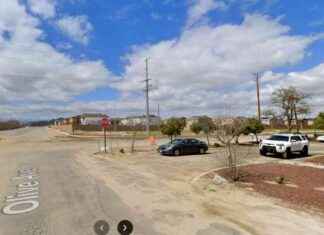Peter Murrell, husband of the still Chief Minister of Scotland Nicola Sturgeon, has resigned as executive director of the Scottish National Party (SNP) and has highlighted the serious crisis that the independence force is going through, after making public the loss of more than 30,000 militants in the last two years.
Murrell resigned hours after communications director Murray Foote did in an internal dispute over the number of militants who will decide the next SNP leader, following the resignation of Nicola Sturgeon over a series of political fiascos: from the controversial Trans Law to the failed second independence referendum.
Sturgeon’s husband, who had managed the party’s finances for more than two decades, was also on the line for a personal loan of 107,000 pounds (120,000 euros) in 2021 that allegedly violated electoral commission rules. For their part, the police are investigating donations of 680,000 euros during the campaign to promote the second referendum.
Despite staying in a discreet background during his wife’s nine-year term, Peter Murrell (58 years old) had captured increasing media attention for his work in the shadow of Sturgeon (52). The two have been married for 13 years and have no children.
His full-time dedication to the SNP over the past decade has paid off in successive electoral successes and a membership of 125,000 in 2019, at Sturgeon’s peak popularity. The downhill began right after, until it lost 32,000 militants in the last two years and reached 72,186.
The figure had remained hidden until this week and had become the subject of dispute between the three candidates for Sturgeon’s succession: Kate Fornes (current Finance Secretary), Humza Yousaf (Health Secretary) and Ash Regan, regional deputy.
“The party has committed an own goal for not revealing the number of militants since the beginning of the election of a new leader,” acknowledged Yousaf, the closest to Sturgeon of the three candidates, criticized for their low political weight. The name of Sturgeon’s successor will be known on March 26. Polls predict a sharp drop in Scottish nationalism amid the current crisis and a notable recovery for the Labor Party in local elections in May.
According to the criteria of The Trust Project






